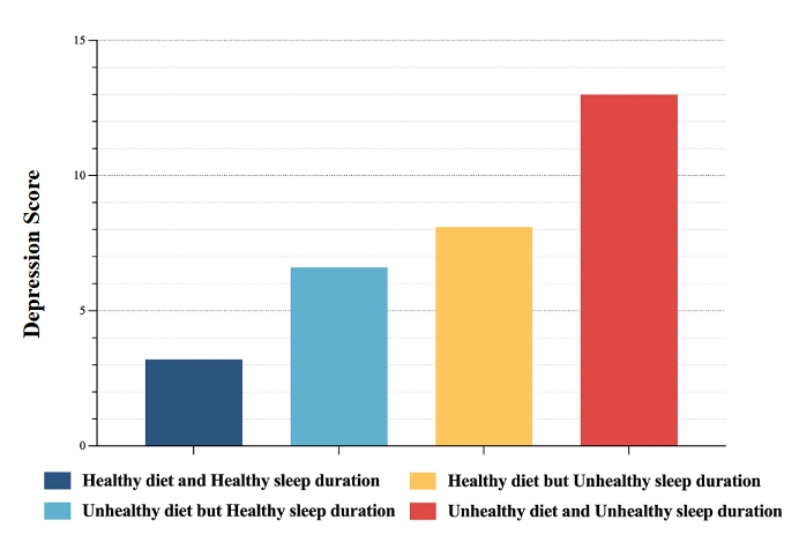Fueling Happiness
American adults with both an unhealthy diet and poor sleep habits are more likely to experience depressive symptoms.

Read Time: 2 minutes
Published:
In our hectic daily lives, we tend to prioritize our responsibilities at work and at home. We often end up sacrificing our sleep schedules and healthy eating. Only about 48% of U.S. adults get the recommended seven or more hours of sleep per night, and 20% sleep for less than six hours.
While the number of adults not getting an adequate amount of sleep is on the rise, our diets are improving. In the past 20 years, the proportion of adults who are not getting adequate nutrients, like calories, proteins, and vitamins, decreased from just under half to 37%.
Diet and sleep strongly affect our mental health. An unhealthy diet has been linked to depression by increasing inflammation, triggering depressive symptoms. Lack of sleep has also been tied to burnout, a state of mental and emotional exhaustion that can impact our mood and daily functioning.
Yue Du and colleagues linked sleep duration and diet to depressive symptoms using the National Health and Nutrition Examination Survey. The diets of the 19,134 adults included in the study were assessed using the Healthy Eating Index. The researchers categorized individuals scoring in the bottom 60% as having a poor diet. Participants who reported sleeping for a short (less than seven hours) or long (more than nine hours) duration on average were considered to have an unhealthy sleep duration. A nine-question patient health survey was used to identify symptoms of depression.

The graph above compares depression scores within groups of varying diet and sleep quality. Those with both an unhealthy diet and unhealthy sleep duration (shown in red) were most likely to demonstrate depressive symptoms.
Specific groups within the study show stronger effects of diet and sleep on mental health, including females, middle-aged participants, and those with a college education, as well as those with excessive alcohol use.
The authors recommend affordable interventions that will promote both healthy eating and quality sleep. These may include education on the importance of healthy habits, physical activity initiatives in the workplace, and higher wages to afford quality foods.



